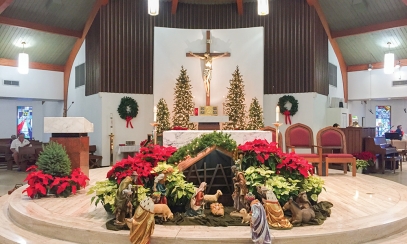
My Priest Was Moved – Now What?
Getting your Trinity Audio player ready...Question: I really love the priests at my parish but one of them was moved to a new church this month. Why do we move priests? How do I adapt to a new priest I don’t know after years of developing a relationship with the one we had?
Question: I really love the priests at my parish but one of them was moved to a new church this month. Why do we move priests? How do I adapt to a new priest I don’t know after years of developing a relationship with the one we had?
Answer: Change is never easy, especially when it involves spiritually significant people in our lives. As your questions suggest, adjusting to new parish leadership, especially someone with a different personality or style, can be a real challenge.
However, the Bishop bears responsibility for the pastoral care of the entire Diocese: laity, religious, and clergy. In fulfilling this duty, he must remain attentive to the needs of each parish and diocesan ministry, while also showing fatherly care for his priests.
With the help of the Priest Personnel Board, the Bishop prayerfully discerns assignments based on many factors: the unique spiritual and pastoral needs of each parish, language fluency, proximity to hospitals, financial resources, and the health, gifts, and vocational growth of each priest. A single change—due to retirement, death, ordinations, or a priest’s personal needs—can create ripple effects, prompting other necessary moves. Every effort is made to limit changes and only make them once a year, usually in July, still various pastoral needs sometimes require exceptions.
Diocesan priests are prepared by their formation to move from assignment to assignment. In my thirty-eight years of priesthood, I have moved ten times and held even more roles, often serving in multiple capacities simultaneously. Every new assignment brought blessings, new challenges, and opportunities for growth—even when the change was difficult.
Here are a few thoughts for parishioners when facing clergy changes:
1. Expect Movement—Especially for Young Priests: Parochial vicars (associate pastors) are often moved in the early years of ministry to gain varied pastoral experience. Pastors typically serve longer terms, but sometimes pastoral needs require an earlier change.
2. Avoid Comparisons: Each priest brings his own personality and ministerial style. Rather than comparing him to a predecessor, try to appreciate the new priest’s gifts and how they might bless you and your parish. In God’s providence, this priest may be there for a reason known only to the Lord.
3. Be Patient with International Priests: Given the shortage of local clergy, the Diocese welcomes priests from other countries. If language or accents are difficult at first, active listening and patience help. If hearing is a challenge for you, speak with the parish about assistive devices.
4. Respect Boundaries: A priest is sent to serve your spiritual and sacramental needs. While friendships may arise, a priest cannot be equally close to everyone. Priests must avoid clericalism but also need space for rest and personal renewal. Healthy boundaries and realistic expectations go a long way.
In short, transitions are part of parish life. Accepting change with charity, patience, and faith opens the door to unexpected graces. Every priest is sent not by chance, but by providence—so let us welcome each one with open hearts and trust in God’s plan.



